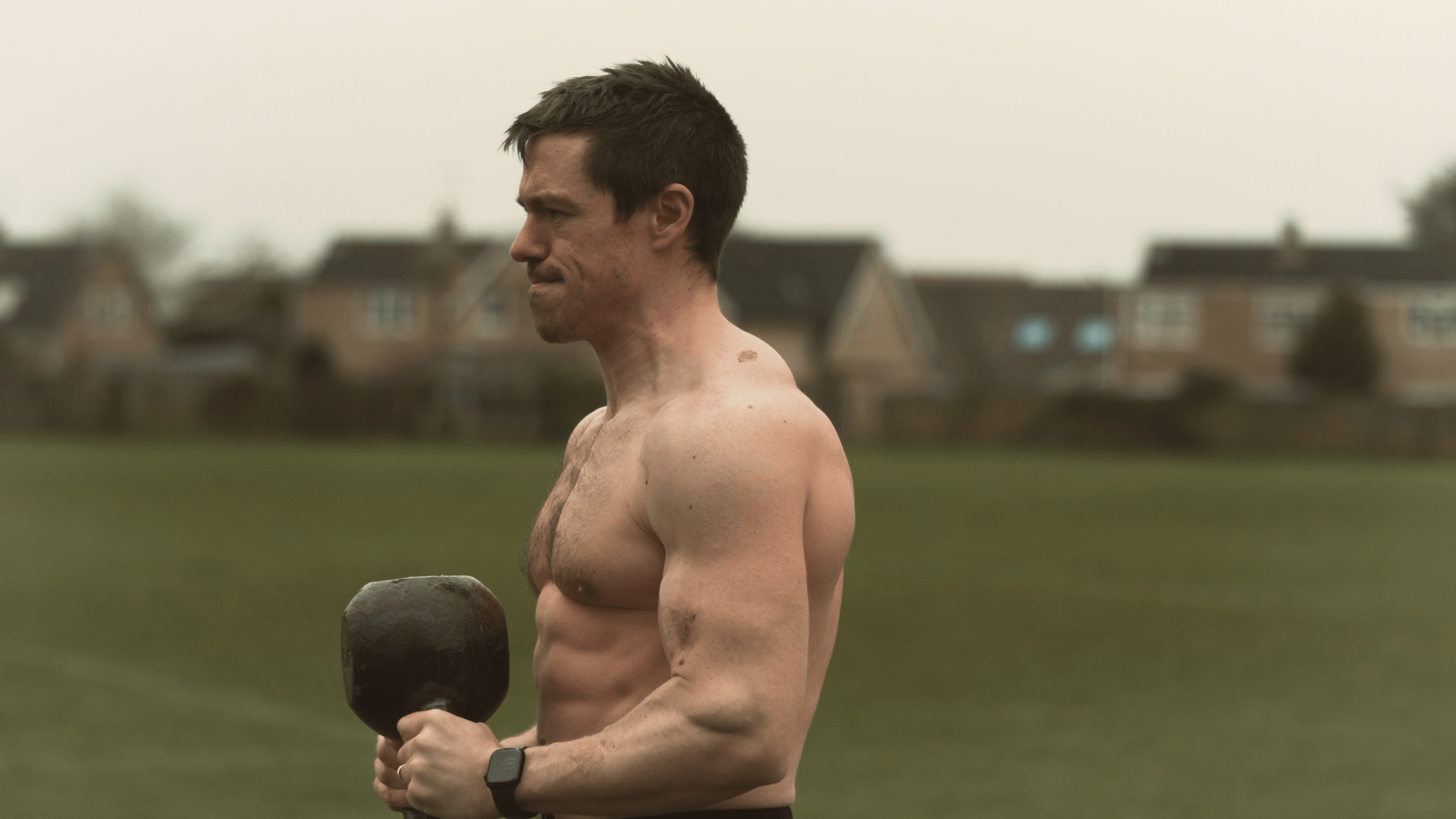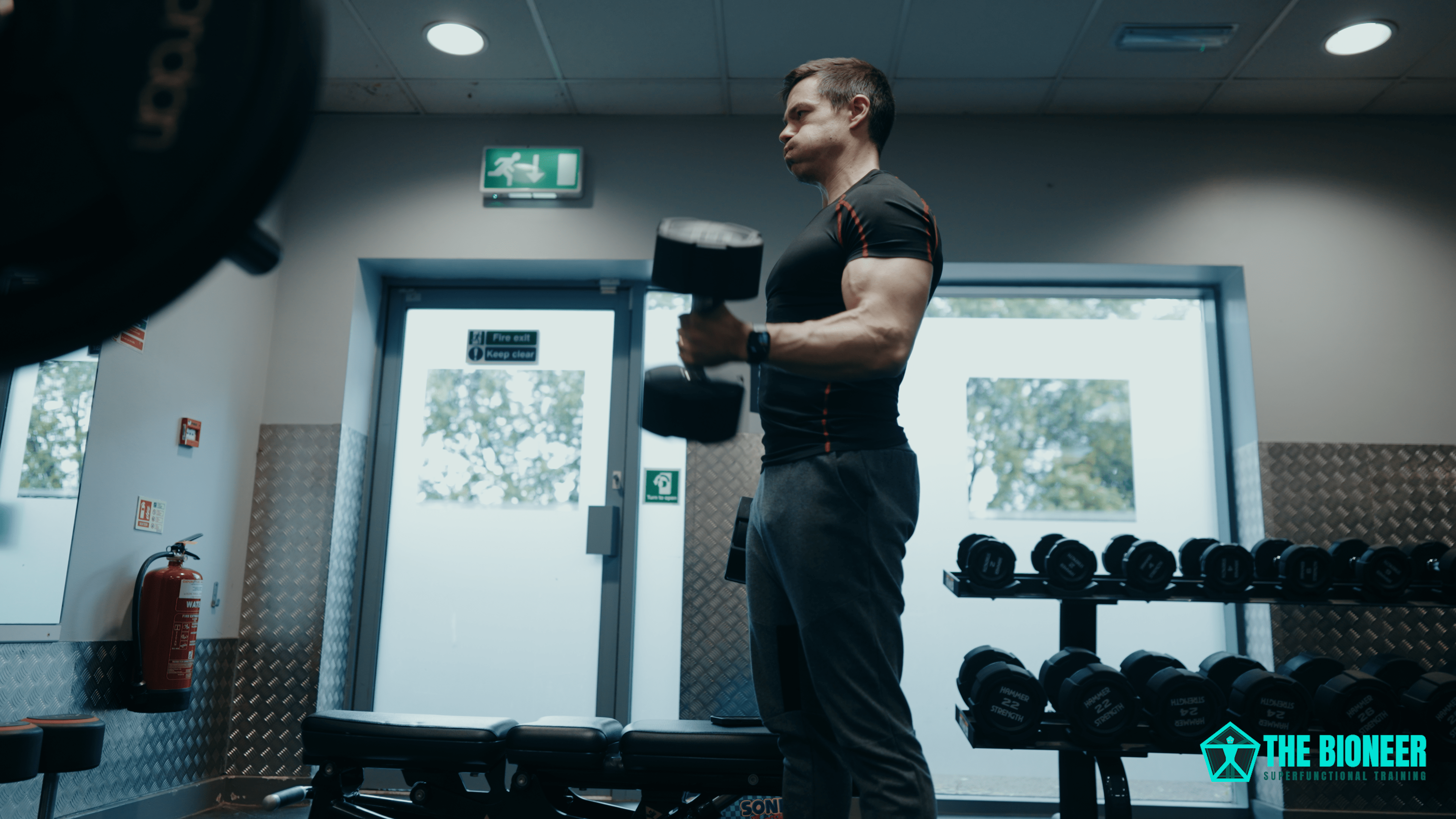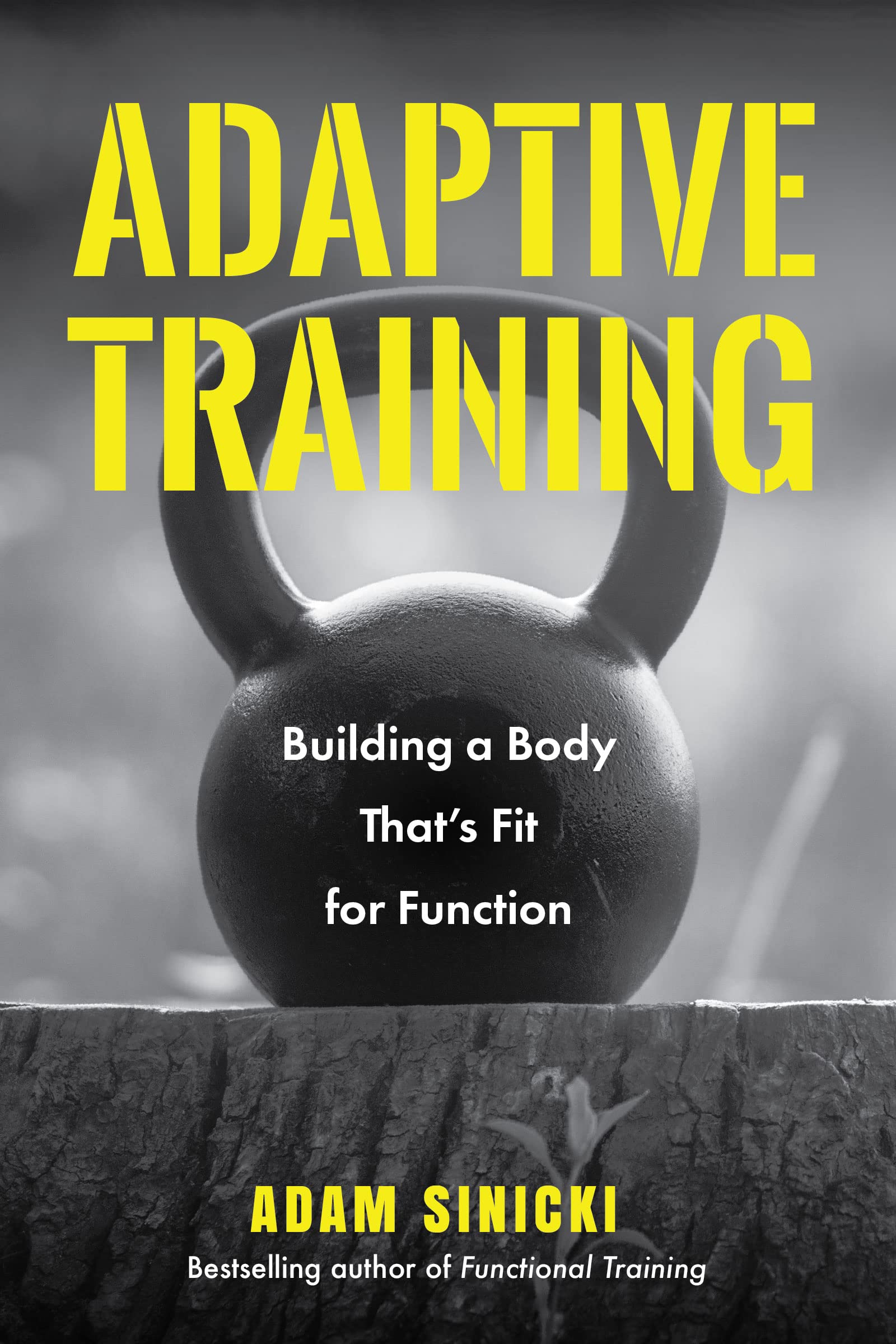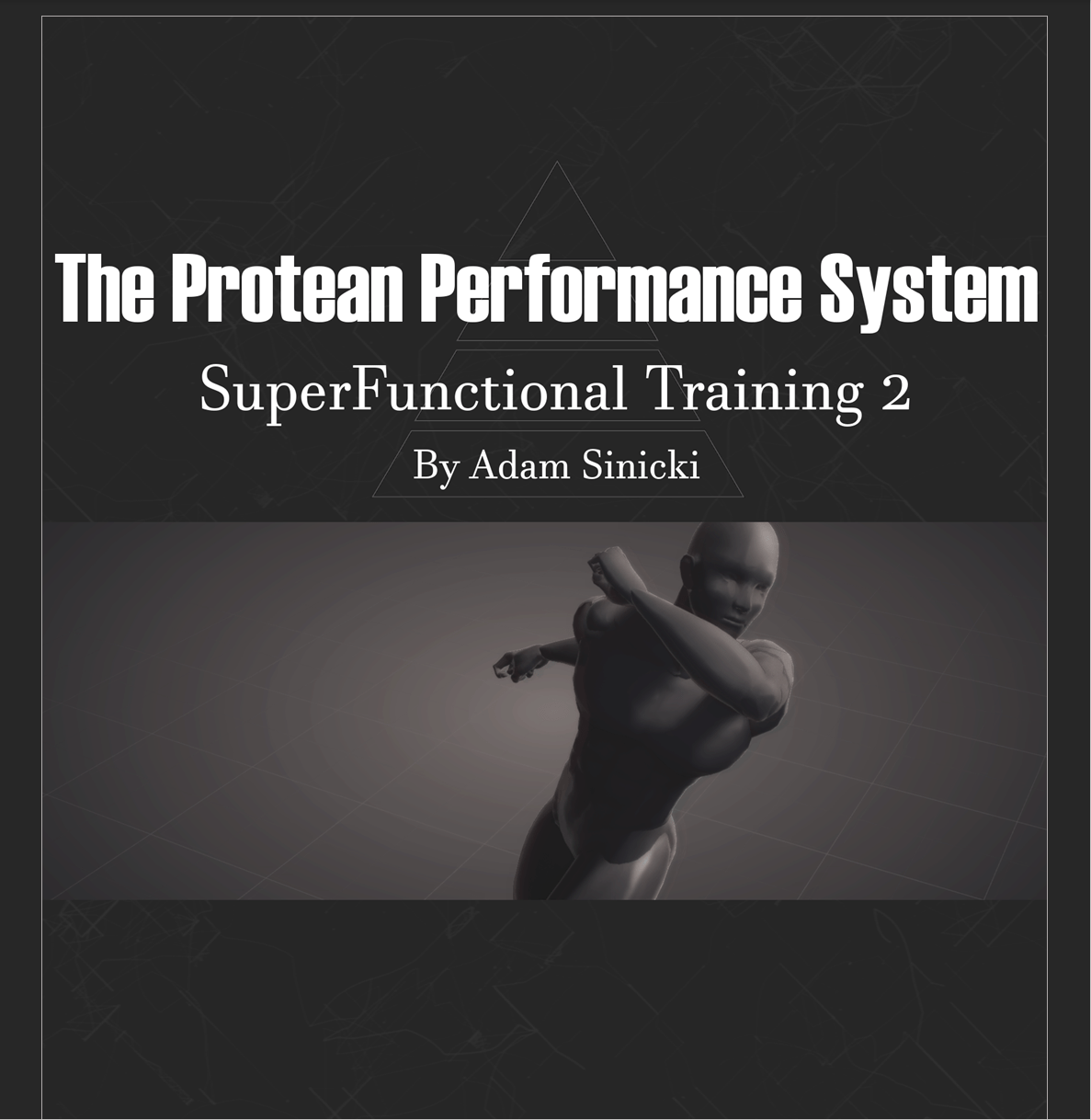- Neuroplasticity – An In-Depth Guide to How it Works and How to Transform Your Brain
- Training to Develop Synaesthesia for Improved Memory and Maths Ability (Theoretically)
- How to Train Like Bruce Lee for Insane Power and Speed
- A Complete Guide to Transhumanism
- The Surface Pro 3 – Ideal Productivity for Web Entrepreneurs
- Can You Bench Press a Dinosaur??
- The Neuroscience of Genius And Increasing Intelligence
- How Caffeine Affects Neurotransmitters and Profoundly Changes Your Brain
- A Detailed Guide to Your Brain – So You Can Start Hacking It
- Almost Every Bodyweight Exercise Ever (150+ Moves)
The State of YouTube Fitness and Social Media
I’m a fitness YouTuber, so I thought it was high time to talk about YouTube fitness. What it’s like contributing to the platform, and how I see the current landscape of fitness across YouTube and the rest of social media.
This will be a more informal chat with a little less editing than usual.
The general opinion surrounding this topic isn’t great, overall. And it’s easy to see why. There are a lot of problems with fitness on social media; unobtainable body standards, unhelpful, or even dangerous advice, controversy and drama for its own sake, and an alarming abundance of grifters… to name but a few.
And we’re often told that this is the fault of the YouTube algorithm. The algorithm, of course, rewards content that gets the most clicks. The job of YouTube is to keep you watching. Therefore, the videos that get watched the most, and for the longest, will inevitably be those that rise to the top.
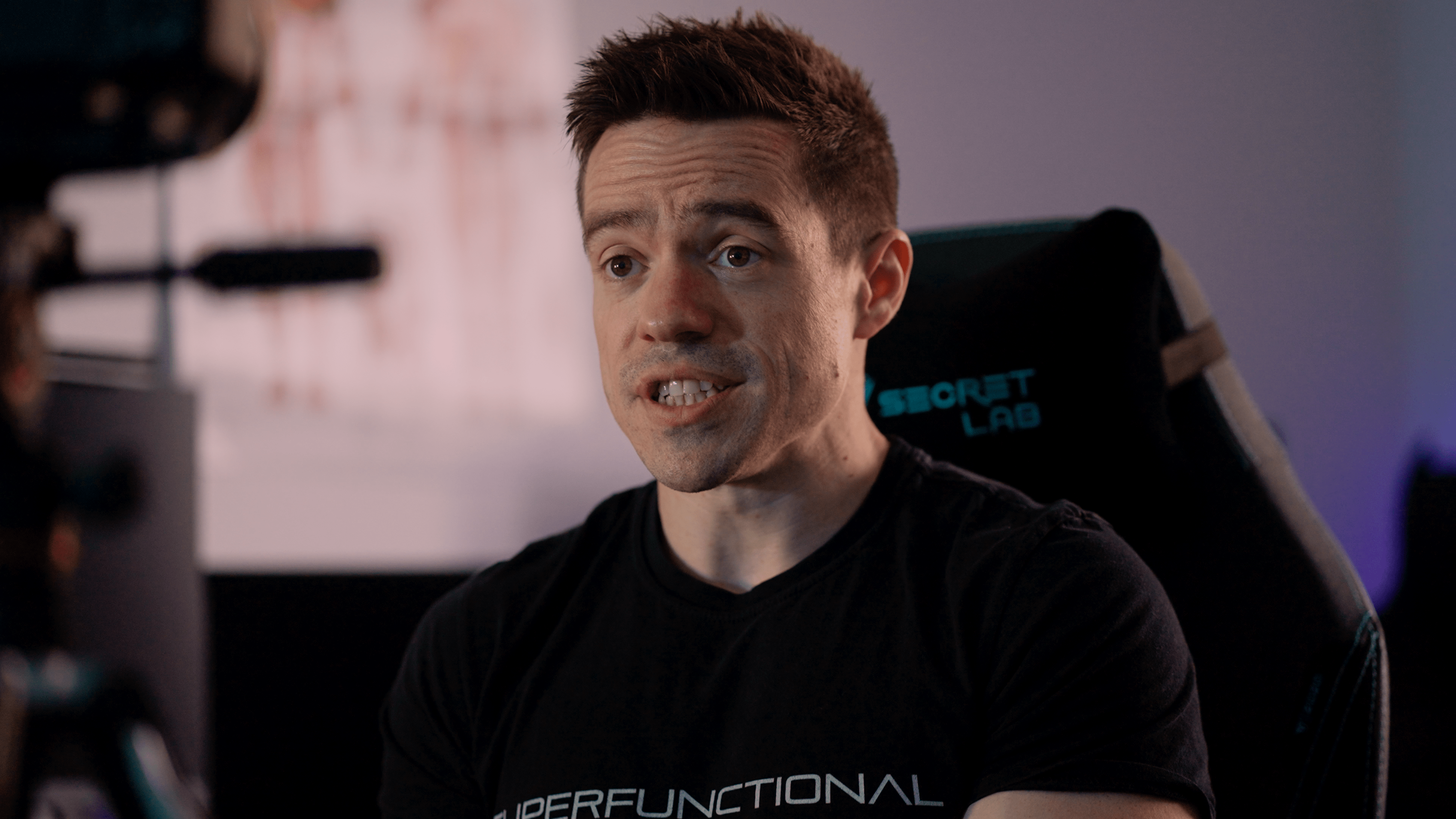
What gets a lot of clicks? Well, the most extreme imagery, of course. That means enhanced physiques. It means people doing crazy things. And it means people making controversial or outrageous claims.
It means drama.
YouTubers are therefore incentivised to be as out-there and as in-your-face as possible. They must never appear to be wrong, or unsure. They must always know everything for certain.
And, of course, they’re incentivised to take performance enhancing drugs.
Make no mistake: there is a lot of profit to be made from a massive YouTube channel. So, if you’re on the fence about taking PEDs, the prospect of fame and fortune might well be enough to seal the deal for you..
The problem is that these huge names are highly influential. Thus, they inspire more people to do the same. Which you don’t need me to tell you can be disastrous. I mean: life ruiningly disastrous.
And the worst part? Taking steroids won’t even get those followers the respect, or the attention from the opposite sex, that they probably believe it will.
We need to remember that a LOT of people who watch YouTube are only in their teens or very early 20s. They’re extremely impressionable and may not have the life experience to make the wisest long-term decisions for their health and happiness.
And, in fact, many of the influencers are young themselves.
Making matters worse, is that a lot of this content is intentionally targeting the insecurities of young men and women.
The image being promised to them seems like salvation: they just need to dedicate their lives to their training. Maybe get on the juice. Shut out all exterior distractions. Go into “monk mode.” Grind.
And hey presto: they’ll be attractive, they’ll be highly successful, and they’ll look and feel phenomenal.
The terrible irony being, that if they push too hard and take steroids, they’ll actually be destroying their bodies. Spending money on dangerous injections from unknown sources, dealing with horrendous side effects, and ruining their health for life.
Even if they don’t go the steroids root, they may become gymcels, ignoring other important aspects of their lives. Or they might start lifting stupidly heavy amounts to impress other online fitness fanatics (social media makes planche push ups and 160kg bench presses seem like the norm).
They might spend huge amounts of money on supplements that don’t do anything. They might start dangerous fad diets.
Every aspect of YouTube fitness and social media encourages this extreme behavior: the fact that every influencer seems to have a God-like physique. The fact that influencers so often shout about the importance of grinding and working extremely hard at the expense of everything else.

A lot of the content that appeals to this crowd will dramatise the process. Make it look romantic and poetic to be grinding away at the gym when everyone else is at home or out having fun. Grinding and taking cold showers is stoic.
And again: if your content is more mundane and level-headed, you will simply struggle to stand out.
This is Not a “YouTube Problem”
But THIS is the real point of contention I want to address. Because it’s not a YouTube problem. It’s not an algorithm problem. It’s been an issue for as long as we’ve had any form of media. When I was younger it was the Men’s Health cover models being blamed for setting those unrealistic expectations. And air-brushed celebrities.
What social media acts like in this situation, is a force multiplier. It amplifies the problem by broadcasting it into more eyeballs.
But this only works because the desire is already there. This is a problem with the mindset of many young guys, in particular.
So, we’re not going to fix it by shouting about how broken YouTube or social media is. That’s just “angry man shouting at cloud.” Instead: we need to focus on the underlying beliefs and assumptions that lead to this state of mind.
And perhaps the culture that perpetuates those beliefs.
There are two reasons to train.
One is because you love training. You love your craft: be it powerlifting, calisthenics, bodybuilding, strong man. Maybe you want to build a statuesque physique, as an artist might sculpt from clay. Maybe you love the sensation of running and feeling the wind in your hair. That might be the only time you feel alive and free.

But the other reason to train is because you think it’s going to make your life better outside of fitness. You think it’s going to elevate your status. The way people see you. And – just maybe – the way you see yourself.
It won’t.
Sure, it can make you happier. It can boost your confidence. It can even combat pain and dysfunction. But it won’t solve all your problems.
I promise you right now that if you’re awkward around women… working out won’t help your chances. And if you’re broke, working out certainly won’t help with that.
If your friends tease you now, building lots of muscle will not suddenly gain you tons of respect.
(By the way, they tease you because they love you.)
Your awkwardness is more to do with confidence, self-resepct, emotional intelligence, self-awareness. Things that CAN be learned to a certain extent… but not in the gym. And people will detect those insecurities no matter HOW big your biceps are.
And even if you did get more sex, more respect, more status… that wouldn’t necessarily make you happy. I know that’s a cliche… but it’s a true one.
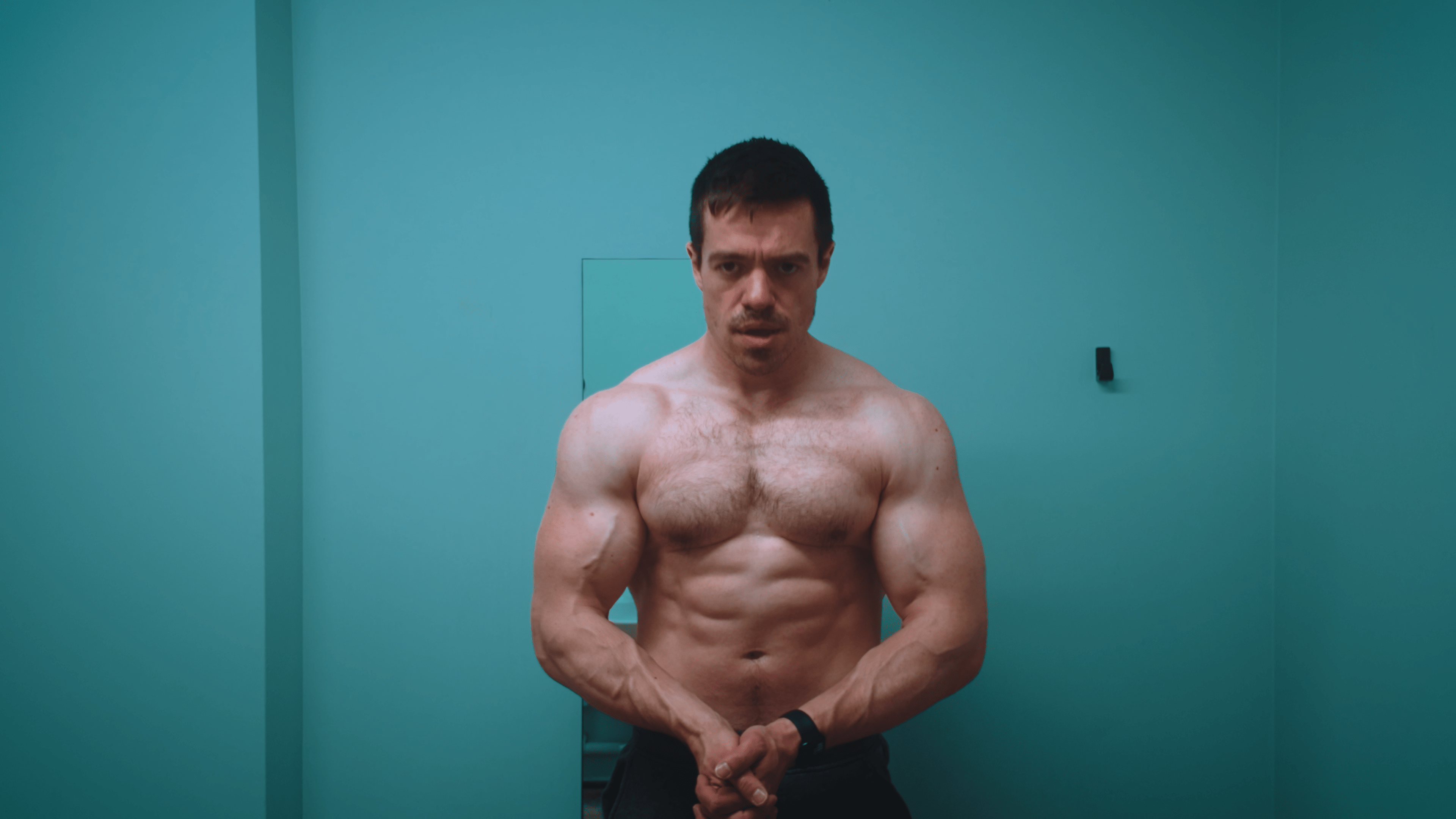
But because that latter motivation is SUCH a strong driver – because this is the image of success that is promoted everywhere – it’s an obvious point of leverage for creators wanting to market their channel. Portray a certain lifestyle, tie it to your brand, and implicitly promise that if they take your supplement/follow your program/subscribe, your viewers will achieve everything they’ve ever wanted.
With this also comes a requirement for those creators to make themselves look perfect. They can’t show any sign of weakness. They can’t get injured or be seen to blow off the gym to spend the night playing Pokemon.
Which only widens that gulf between expectation and reality.
This is why I have such a big issue with all these testosterone supplements and testosterone hacks. They cause fractional increases in testosterone. MAYBE. If you already have chronically low levels and those low levels are caused by factors that X herb actually addresses.
But they’re marketed as though they’re going to make you an alpha male.
NOTHING will make you an alpha male.
And you shouldn’t want to be one, anyway. Because it’s a made up nonsense. And because that isn’t going to make you happy.
It’s normal to feel a bit lost when you’re a teenager or in your early twenties. And it’s normal to want respect and a partner who’s a ten out of ten. And it’s frustrating that that doesn’t come over night.
But it’s normal.
When I was young and single, I was desperately weird and terrible with girls, as you probably would guess.
But rather than being upset about it, I saw it as a rite of passage. I knew it was normal not to be a stud. My friends and I had more in common with the cast of American Pie or The Inbetweeners. We were awkward around women and had some hilarious stories to tell. Sure, I was painfully horny a lot of the time – but it never affected my self esteem.
Any time I was rejected in spectacular fashion, it was just another funny story.
Sure, I pined from time to time. But that’s just the human condition.
I was already pretty ripped, by the way, and it didn’t help me one bit. And that was fine. Then I met my wife.
I feel like we need more comedies like those now. And I feel like YouTube fitness content should lighten up a bit, come back down to Earth, and just be fitness content.
Until we care less about status. Until we care less about being alpha or being hyper productive or being insanely ripped… we will be easy to manipulate. It’s only when you learn to let go, stop taking yourself so seriously, and start to enjoy the ride – that you become truly free. Fitness should help with that – by helping you to express yourself and experience life.
I learned that from Sonic the Hedgehog. Now there’s a positive role model.
You should train to live – not live to train. That shouldn’t be your entire personality. Be a bit normal – hang out with friends, eat takeaways. It might seem that I live and breathe training because that’s what I talk about on camera. But off camera I spend AS MUCH time playing retro games. If not more time.
I currently spend my evenings wearing face masks and watching “Virgin River.”
I’m trying to communicate that side of myself on YouTube more and more because I think THAT should be the norm.
My whole world doesn’t revolve around what I can bench press.
And this is another problem with YouTube fitness: so much of it is aimed at people who LIVE the gym life. Or it encourages viewers to become those sorts of people.
When a lot of people don’t care all that much and just want to quickly learn how to do a bicep curl the best way.
And, next time you find yourself in a heated argument in the comments section, try to remember that person might well be a teenager. And you were probably like that once, too.
The Problem With Experts

The good news is that there is PLENTY of excellent fitness content on YouTube. This is what I mean when I say it’s not a YouTube problem or an algorithm problem. If you know where to look and you know what you want to watch, then you will have no shortage of channels that simply share their craft and provide tips and help.
With that said, we still do need to be careful. Even when content is strictly educational, we must remember that it is ultimately opinion, it is often motivated by cash. And what works for one person, won’t work for everyone.
Again, it’s about lightening up and admitting that we don’t know everything.
What annoys me is when any content portrays itself as “the only way” or completely infallible. When creators start to drink their own cool-aid.
(That’s the saying, right?)
There are two types of fitness experts. Those that draw from their own personal experience, and those that lean on their qualifications and education. Neither is infallible.
You don’t need me to tell you why you should take advice from gym bros with a pinch of salt. But what about the boffins?
Getting a degree isn’t all that difficult. It’s similar to an A-level but a bit longer. I have one, so that should tell you everything you need to know. Doing a personal training diploma is considerably easier than that. Again, I managed, so it’s clearly not a high bar.
Here in England, a masters is just one year of extra study. And a Phd, while a massive undertaking, is essentially a single huge dissertation on just one very specific niche within a subject.
So, someone having a Phd in exercise science doesn’t really mean they’re an expert on all things fitness. This is before we take into account the bad actors that intentionally skew results and misinterpret data because it fits their idealogical viewpoints or makes them money.
I just watched and excellent video debunking a lot of evolutionary psychology, by Munecat. I’ve always been dubious of some of the claims, but the amount of misinformation peddled by creators and podcast guests is unreal. So many of the “facts” about human behaviour that we take for granted are based on extremely shaky grounds.
Time and time again I’ve been taken in by some claim or study that sounds fascinating… only to later learn it was since disproven, used a sample of three guys and a potato, and was funded by some shady corporation.

I’m not saying don’t trust science. And I’m not trying to be anti-intellectual. I’m just saying that the most highly decorated individual is STILL just like you and me. They’re applying a little more understanding but they’re still interpreting things their own way.
I remember when I was hired to write a book about coding and I realised no one was checking it. Because I was the expert. Apress, an imprint of Springer, didnd’t have anyone more knowledgeable than me about C# coding for Unity.
I shared this shock with a guy at an antenatal group. He was a doctor and was writing a book about medicine. Likewise, his publishers weren’t checking his facts because he was the expert. He was just a normal guy, as far as he was concerned. He could have written anything.
And, on YouTube where there is a lot of incentive to be seen as a font of knowledge, it’s very tempting to start speaking with that same authority on topics that you don’t really know anything about. To read one or two studies and connect the dots.
Also, keep in mind, that the “research” changes literally all the time. The best advice one year will be completely different from the best advice next year.
And the very NATURE of scientific studies means you shouldn’t be making every decision around them. Even when they’re perfectly designed studies.

Let’s imagine a hypothetical study showing that two sets are better than three for hypertrophy. Let’s imagine this study is perfectly designed, accounting for all confounding variables and with a huge sample etc. etc.
That might sound like it should be an iron clad rule, right? Except that it is only comparing two sets versus three where all else is equal. What if you do two sets of similar exercises? Or two sets of one exercise and then a third set of a very similar exercise?
Studies don’t include this kind of context or nuance – they can’t. And therefore they should only be used to inform and guide our decisions, not to dictate them.
Again, this is why I’m getting tired of hearing YouTubers – PHD holders or otherwise – promote all these biohacks and optimisation strategies. And I REALLY get sick of hearing them weigh in on politics and socio-economics.

You’ll hear about how cold showers raise testosterone. It sounds amazing until you learn that the study was looking at guys with varicoles – a condition affecting blood flow to the testes. And it was actually sperm count, not testosterone. And it was ice baths, not cold showers. And ice baths take bloody ages to run and cost a fortune. Some say you can mimic this by letting the water dry off naturally, over and over again. That sounds like a great use of time.
A 10% raise in testosterone sounds incredible, until you realise that 10% of 600 is 660% which will have absolutely zero effect on anything noticeable. Until you realise that your testosterone goes up and down all throughout the day and countless other things you do will change that figure.
I’m so glad I spent half an hour standing wet in the bathroom.
The supplements that claim to raise testosterone are just as – if not more – tenuous.
And don’t get me started on dopamine and the insane the amount of liberties taken there.
Again, the way to interact with YouTube is not JUST to question every single study and claim. It’s to look at the bigger picture. You don’t NEED a 10% increase in testosterone. If you’re not happy with your physique, you just need to train more.
You don’t NEED to get some insane productivity boost in the morning. Your body aims to maintain a state of equilibrium. If you are too tired to work, you should probably just take it a bit easier for a while.
Do you genuinely think that you’re going to see your life improve in any meaningful way by wearing silly blue blocking shades? Or following thee protocols? When just improving your diet or your exercise would have a FAR bigger impact?
And, likewise, it doesn’t really matter what the absolute optimal number of sets and reps is. These are minor differences under specific circumstances. It varies from person to person.
What we DO know is that anything between 4-20 reps (and the range is probably even bigger) will have some positive benefit on strength and/or hypertrophy. Choose one and see if it works for you.
It’s all just noise.
Again, listen to these guys because it’s interesting. But don’t put them on a pedastal and don’t plan your life around studies. Look: I could wax lyrical about all the studies and benefits surrounding broccoli. And I could make a video. And then a bunch of people would start eating broccoli every day.
But there are a million and one vegetables out there that are also good. You can’t eat every vegetable, every day.
So, what do you do? You just follow your instinct, eat well-ish, but don’t freak out about it.
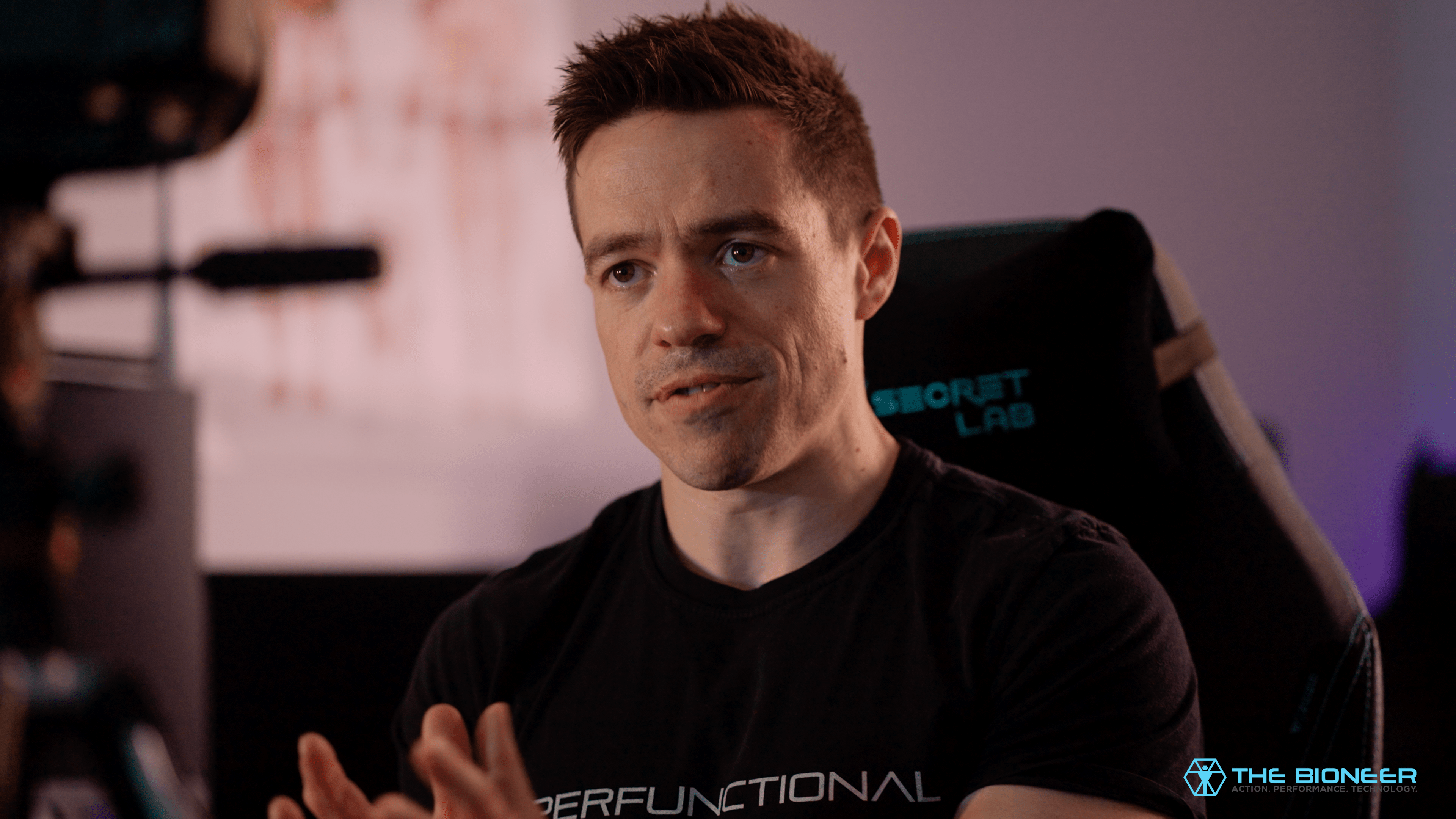
Problem is, again, YouTube rewards content creators for being certain. For starting trends and fads. For claiming every other diet or training method is nonsense. For creating “tribes.”
For saying their way is the only way. For getting super defensive when someone claims something different.
And some of them really believe their own hype, I think.
And this becomes even more of a problem when those same out-of-touch YouTubers start talking about political views. And their conspiracy theories. And people believe them because they’ve elevated their status to such an extent.
A lot of the health advice you hear on YouTube is tainted by the politics of the person talking about it. People spreading misinformation about cellular towers, the feminising effects of oestrogens in the water, vaccines, soy… because they want to provoke outraged and create someone to blame for feeling lesser.
You know all that stuff about soy boys? It’s nonsense. There simply is NOT robust evidence to suggest soy reduces testosterone. This myth is perpetuated for flimsy culture wars reasons.
And then those YouTubers are given huge platforms to do this: they appear on podcasts and share their hot takes. And I honestly believe this is a lot of the reason we see so much division online.
Remember: a lot of this information is coming from the same misguided place – the belief that you need to do the best and be the biggest and most successful. That anything else is weak or pointless.
Again, fitness YouTube needs to chill out. You just make videos about doing curls. You’re not a prophet! Do the curls.
Who’s Left?
I’m kind of implying here that you shouldn’t trust the young guys who use steroids and pose at the gym but also that you can’t fully trust the pseudo intellectuals. So, who’s left?
Well, for starters, I’m not saying not to watch anyone or even not to trust them. But keep in mind that it’s ALL just opinion. They might have a more informed opinion, but it’s still just opinion. They may or may not also have your best interests at heart. So, watch more than one video and check the research.
And don’t let your personal views cloud your judgement here – especially if it’s somehow conflating politics.
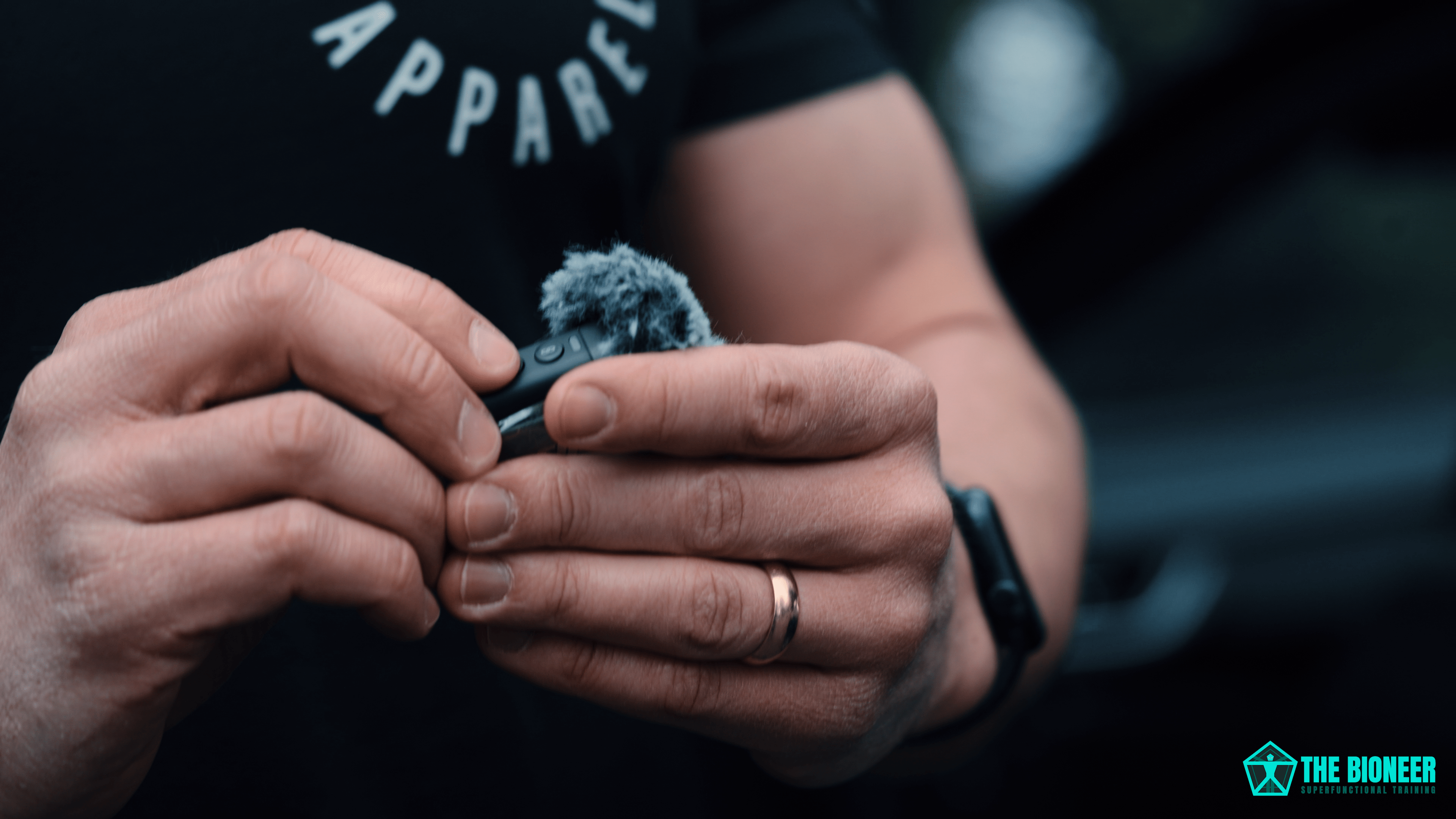
I think the most reliable sources of knowledge are those that have actually trained other people. Coaches can see how different strategies work for different people and they understand the impact of lifestyle, health issues, individual differences, personality, etc. etc.
But beyond that, just watch content you enjoy that inspires you and gives you cool tips. The main thing is just to look at those content creators as peers and not as all-knowing wizards. Don’t get too swept up and have realistic expectations. Not just realistic expectations for your body transformation but, more importantly, realistic expectations for how this will affect other parts of your life. Fitness WON’T solve all your problems.
Find an approach to fitness you vibe with and then find a few people that are a bit ahead of you. Listen to them, but take it with a pinch of salt.
Remember: fitness can be really fun. It SHOULD be really fun. It’s not about being the best or transforming your body. It’s about feeling better in yourself, preventing health issues, expressing yourself, and exploring what you can do.
Try to enjoy your fitness, don’t get too attached to the outcome, and don’t make it your whole identity. That way, you can keep us content creators at arm’s length and enjoy it as a form of entertainment with perhaps the occasional snippet of useful information or inspiration.
My Approach to YouTube Fitness
In the interests of transparency, I’ll take this opportunity to share my approach to creating content. And what it’s actually like being on the other side of this equation.
Because I’m not by any means claiming to be perfect. I too, am motivated by money. I’ve been really lucky to be able to do this as a job… but it comes with a lot of stress! This is a whole business. Every decision I make about what type of video to upload, how much to spend on camera equipment, which sponsors to take on… it all feels like one wrong move could destroy my channel. I could live with that, even though I LOVE this job and I’d be devastated. But the thing is, I have a family to support. I want to do as well as possible because I want to provide the best life I can for my young children.
Doing this job feels like cheating. You’re not supposed to love your job. So, I feel I need to really do the best possible to earn the right to keep doing it.

This is also why I can’t make every video a massive artistic example of self-expression. I do that occasionally – see my video on consciousness for an example – but that video tanked. And with that comes a huge amount of stress. Because one bad video can lead to a string of bad videos, which can cut your Adsense revenue in half for the month.
That’s why I take on sponsors and sell a product. And yeah, sometimes it feels like a conflict of interests. And to sell my training program there has been the incentive to sound like I know everything and never get hurt.
The channel started because I wanted to be like Batman. So, of course, I was very excited by all the biohacks and latest studies.
But then I became aware of how that might come across – like I was saying that everyone should do all these crazy things. That I was Batman and that you should all try and be like me.
That is NOT the ethos I want to promote.
I’m the rabid kid in the corner reading Batman comics and telling you facts about the human body you didn’t want to know. Remember that! Come for the fun and maybe unique perspective – but please remember this isn’t meant to be anything too profound.
I, too, made videos about raising testosterone. Wanting to become some super influential guy. I, too, was drawn to the aesthetic of being confident and strong. Of pushing the limits.
And as I grew up – remember I started this YouTube channel when I was 21 and now I’m 36 – I took on many more responsibilities. I’ve had jobs and kids and injuries, since then. And, in light of all that, a lot of this stuff just seemed a bit silly.
Not becoming Batman. I still want to train like Batman. But thinking that the way to do that is to spend every minute thinking about fitness and to take, like, 18 different herbs.
When life is busy and you’re stressed and tired, you don’t have time to do some ridiculous 20 minute cold water protocol. The only hack I found that really worked was to enjoy the training and to not be wed to one style or one result. I better crystallised what I wanted to achieve but also recognised it would always be a compromise – because life should come first.
I’ve tried to ensure this comes across on the channel. Increasingly, I’m trying to share my actual journey including the mistakes and the injuries.
And honestly? That’s the real reason I make these videos. I’m still inspired by movement and human performance. I love how the body works and I love imagining the incredible things we could achieve with it. I create those videos because they’re the videos I want to watch. For inspiration and entertainment.
In many ways, I do this for me. This is me expresing myself online. I’m really happy that some other people like it, too.
I’ve researched a lot of stuff and I hope you’ll still find that interesting if you buy my book. I do a LOT of due dilligence and I’d like to think I’m maybe a little more thorough than some people – owing to my writing background, perhaps.
But that’s as far as it goes.
I try to strike a balance between content I know will do well and content that lets me express myself more.

As for the sponsors: my policy has always been to take on sponsors that are a little outside my niche OR very straight forward. I don’t take supplement sponsors because, as a fitness YouTuber, you might put too much stock in my opinion – when I do NOT have enough authority to recommend you a multivitamin. Not only that, but I genuinely don’t think you need ANY supplement. I, personally, now take only creatine and protein shake. I sometimes will dabble in something else as an experiment – but I certainly wouldn’t suggest spending a lot of money.
And again, these are FUN experiments. Hey: I wonder if I can become more alert and focussed as an experience. Not because you need that to be happy or successful.
My cognitive performance was boosted significantly more by therapy than it ever has been by a supplement.
But, when it comes to Squarespace or NordVPN, I hope I can recommend these services just as someone who has used them and likes them – not from a place of authority.
CrossRope is an exception because that’s a jump rope. It’s a high quality jump rope. There’s not really any way you can get that wrong.
But I’m not making some bold health claim, here. What you see is what you get.
And Vivobarefoot is probably the only real exception but it’s one I’m happy to make. Why? Because as much as the best advice for health and fitness might change… our feet are our feet. I personally don’t see how changing them less could be anything other than a positive. Perhaps I’m wrong, but that’s why I’m happy to make this exception. It really does gel with the message of my channel and, in this one case, I’m happy to stick my neck out.
And, at the very least, I find that I can’t balance on beams as well when I’m not wearing them.
And I always want to be able to balance on beams. Because it’s fun.
So, that’s where I’m at. I hope I’m doing this right. But remember: I’m just a guy sharing videos about training like Batman.
I’ll share some of my favourite YouTubers in an upcoming video or blog post! But until then… bye for now!

